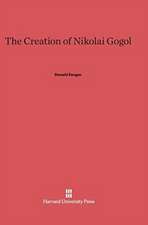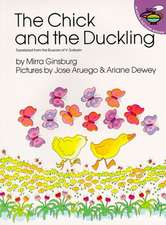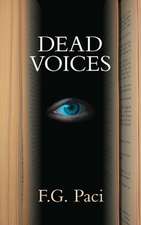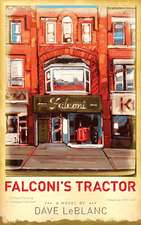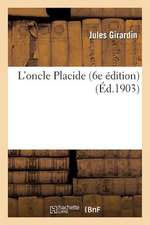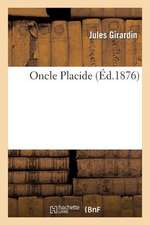Notes from Underground
Autor Fyodor Mikhailovich Dostoevskyen Limba Engleză Hardback – iul 2008
“The political cataclysms and cultural revolutions of our century…confirm the status of Notes from Underground as one of the most sheerly astonishing and subversive creations of European fiction.”
–from the Introduction by Donald Fanger
| Toate formatele și edițiile | Preț | Express |
|---|---|---|
| Paperback (4) | 26.15 lei 3-4 săpt. | |
| Bantam Classics – 30 sep 1983 | 26.15 lei 3-4 săpt. | |
| CREATESPACE – 31 ian 2009 | 72.56 lei 3-5 săpt. | |
| Stonewell Press – 18 oct 2013 | 73.29 lei 6-8 săpt. | |
| Classic Books Library – 30 iun 2008 | 74.30 lei 6-8 săpt. | |
| Hardback (2) | 121.22 lei 3-5 săpt. | |
| www.bnpublishing.com – 13 mai 2009 | 121.22 lei 3-5 săpt. | |
| Editorium – iul 2008 | 134.38 lei 6-8 săpt. |
Preț: 134.38 lei
Nou
Puncte Express: 202
Preț estimativ în valută:
25.72€ • 26.75$ • 21.23£
25.72€ • 26.75$ • 21.23£
Carte tipărită la comandă
Livrare economică 14-28 aprilie
Preluare comenzi: 021 569.72.76
Specificații
ISBN-13: 9781434117212
ISBN-10: 1434117219
Pagini: 144
Dimensiuni: 152 x 229 x 13 mm
Greutate: 0.39 kg
Editura: Editorium
ISBN-10: 1434117219
Pagini: 144
Dimensiuni: 152 x 229 x 13 mm
Greutate: 0.39 kg
Editura: Editorium
Notă biografică
Fyodor Mikhailovich Dostoyevsky (1821 - 1881), sometimes transliterated Dostoevsky, was a Russian novelist, short story writer, essayist, journalist and philosopher. Dostoyevsky's literary works explore human psychology in the troubled political, social and spiritual atmosphere of 19th-century Russia and engage with a variety of philosophical and religious themes. He began writing in his 20s and his first novel, Poor Folk, was published in 1846 when he was 25. His major works include Crime and Punishment (1866), The Idiot (1869), Demons (1872) and The Brothers Karamazov (1880). Dostoyevsky's oeuvre consists of 11 novels, three novellas, 17 short stories and numerous other works. Many literary critics rate him as one of the greatest psychologists in world literature. His 1864 novella Notes from Underground is considered to be one of the first works of existentialist literature. Born in Moscow in 1821, Dostoyevsky was introduced to literature at an early age through fairy tales and legends and through books by Russian and foreign authors. His mother died in 1837 when he was 15 and around the same time he left school to enter the Nikolayev Military Engineering Institute. After graduating, he worked as an engineer and briefly enjoyed a lavish lifestyle, translating books to earn extra money. In the mid-1840s he wrote his first novel, Poor Folk, which gained him entry into St. Petersburg's literary circles. In the following years, Dostoyevsky worked as a journalist, publishing and editing several magazines of his own and later A Writer's Diary, a collection of his writings. He began to travel around western Europe and developed a gambling addiction, which led to financial hardship. For a time, he had to beg for money, but he eventually became one of the most widely read and highly regarded Russian writers. His books have been translated into more than 170 languages. Dostoyevsky was influenced by an incredible variety of philosophers and authors. His writings were widely read both within and beyond his native Russia and influenced an equally great number of later writers and philosophers.
Extras
PART ONE
UNDERGROUND*
I
I AM a sick man. . . . I am a spiteful man. An unattractive man. I
think that my liver hurts. But actually, I don't know a damn thing
about my illness. I am not even sure what it is that hurts. I am not
in treatment and never have been, although I respect both medicine
and doctors. Besides, I am superstitious in the extreme; well, at
least to the extent of respecting medicine. (I am sufficiently
educated not to be superstitious, but I am.) No, sir, I refuse to see
a doctor simply out of spite. Now, that is something that you
probably will fail to understand. Well, I understand it. Naturally, I
will not be able to explain to you precisely whom I will injure in
this instance by my spite. I know perfectly well that I am certainly
not giving the doctors a "dirty deal" by not seeking treatment. I
know better than anyone that I will only harm myself by this, and no
one else. And yet, if I don't seek a cure, it is out of spite. My
liver hurts? Good, let it hurt still more!
I have been living like this for a long time-about twenty years. Now
I am forty. I used to be in the civil service; today I am not. I was
a mean official. I was rude, and found pleasure in it. After all, I
took no bribes, and so I had to recompense myself at least by this.
(A poor joke, but I will not cross it out. I wrote it, thinking it
would be extremely witty; but now I see that it was only a vile
little attempt at showing off, and just for that I'll let it stand!)
When petitioners came to my desk seeking information, I gnashed my
teeth at them, and gloated insatiably whenever I succeeded in
distressing them. I almost always succeeded. Most of them were timid
folk: naturally-petitioners. But there were also some fops, and among
these I particularly detested a certain officer. He absolutely
refused to submit and clattered revoltingly with his sword. I battled
him over that sword for a year and a half. And finally I got the best
of him. He stopped clattering. This, however, happened long ago, when
I was still a young man. But do you know, gentlemen, what was the
main thing about my spite? Why, the whole point, the vilest part of
it, was that I was constantly and shamefully aware, even at moments
of the most violent spleen, that I was not at all a spiteful, no, not
even an embittered, man. That I was merely frightening sparrows to no
purpose, diverting myself. I might be foaming at the mouth, but bring
me a doll, give me some tea, with a bit of sugar, and I'd most likely
calm down. Indeed, I would be deeply touched, my very heart would
melt, though later I'd surely gnash my teeth at myself and suffer
from insomnia for months. That's how it is with me.
I lied just now when I said that I had been a mean official. I lied
out of sheer spite. I was merely fooling around, both with the
petitioners and with the officer, but in reality I could never have
become malicious. I was aware at every moment of many, many
altogether contrary elements. I felt them swarming inside me, those
contrary elements. I knew that they had swarmed inside me all my
life, begging to be let out, but I never, never allowed them to come
out, just for spite. They tormented me to the point of shame, they
drove me to convulsions-I was so sick and tired of them in the end.
Sick and tired! But perhaps you think, dear sirs, that I am now
repenting of something before you, asking your forgiveness for
something? . . . Indeed, I am quite certain that you think so. But
then, I assure you it doesn't make the slightest difference to me if
you do. . . .
I could not become malicious. In fact, I could not become anything:
neither bad nor good, neither a scoundrel nor an honest man, neither
a hero nor an insect. And now I am eking out my days in my corner,
taunting myself with the bitter and entirely useless consolation that
an intelligent man cannot seriously become anything; that only a fool
can become something. Yes, sir, an intelligent nineteenth-century man
must be, is morally bound to be, an essentially characterless
creature; and a man of character, a man of action-an essentially
limited creature. This is my conviction at the age of forty. I am
forty now, and forty years-why, it is all of a lifetime, it is the
deepest old age. Living past forty is indecent, vulgar, immoral! Now
answer me, sincerely, honestly, who lives past forty? I'll tell you
who does: fools and scoundrels. I will say this right to the face of
all those venerable old men, all those silver-haired, sweet-smelling
old men! I have a right to say it, because I will live to sixty
myself. To seventy! To eighty! . . . Wait, let me catch my breath. .
. .
You might be imagining, gentlemen, that I am trying to amuse you, to
make you laugh? Wrong again. I am not at all the jolly character you
think I am, or may perhaps think I am. But then, if, irritated by all
this prattle (and I feel it already, I feel you are irritated),
you'll take it into your heads to ask me what I am, I'll answer you:
I am a certain collegiate assessor. I worked in order to eat (but
solely for that reason), and when a distant relation left me six
thousand rubles in his will last year, I immediately retired and
settled down in my corner. I had lived here previously as well, but
now I've settled down in this corner. My room is dismal, squalid, at
the very edge of town. My servant is a peasant woman, old, stupid,
vicious out of stupidity, and she always has a foul smell about her
besides.
I am told that the Petersburg climate is becoming bad for me, that
with my niggling means it's too expensive to live in Petersburg. I
know all that, I know it better than all those wise, experienced
counselors and head-shakers. But I stay on in Petersburg; I shall not
leave Petersburg! I shall not leave because. . . . Ah, but what
difference does it make whether I leave or don't leave.
To go on, however-what can a decent man talk about with the greatest pleasure?
Answer: about himself.
Well, then, I too shall talk about myself.
--
UNDERGROUND*
I
I AM a sick man. . . . I am a spiteful man. An unattractive man. I
think that my liver hurts. But actually, I don't know a damn thing
about my illness. I am not even sure what it is that hurts. I am not
in treatment and never have been, although I respect both medicine
and doctors. Besides, I am superstitious in the extreme; well, at
least to the extent of respecting medicine. (I am sufficiently
educated not to be superstitious, but I am.) No, sir, I refuse to see
a doctor simply out of spite. Now, that is something that you
probably will fail to understand. Well, I understand it. Naturally, I
will not be able to explain to you precisely whom I will injure in
this instance by my spite. I know perfectly well that I am certainly
not giving the doctors a "dirty deal" by not seeking treatment. I
know better than anyone that I will only harm myself by this, and no
one else. And yet, if I don't seek a cure, it is out of spite. My
liver hurts? Good, let it hurt still more!
I have been living like this for a long time-about twenty years. Now
I am forty. I used to be in the civil service; today I am not. I was
a mean official. I was rude, and found pleasure in it. After all, I
took no bribes, and so I had to recompense myself at least by this.
(A poor joke, but I will not cross it out. I wrote it, thinking it
would be extremely witty; but now I see that it was only a vile
little attempt at showing off, and just for that I'll let it stand!)
When petitioners came to my desk seeking information, I gnashed my
teeth at them, and gloated insatiably whenever I succeeded in
distressing them. I almost always succeeded. Most of them were timid
folk: naturally-petitioners. But there were also some fops, and among
these I particularly detested a certain officer. He absolutely
refused to submit and clattered revoltingly with his sword. I battled
him over that sword for a year and a half. And finally I got the best
of him. He stopped clattering. This, however, happened long ago, when
I was still a young man. But do you know, gentlemen, what was the
main thing about my spite? Why, the whole point, the vilest part of
it, was that I was constantly and shamefully aware, even at moments
of the most violent spleen, that I was not at all a spiteful, no, not
even an embittered, man. That I was merely frightening sparrows to no
purpose, diverting myself. I might be foaming at the mouth, but bring
me a doll, give me some tea, with a bit of sugar, and I'd most likely
calm down. Indeed, I would be deeply touched, my very heart would
melt, though later I'd surely gnash my teeth at myself and suffer
from insomnia for months. That's how it is with me.
I lied just now when I said that I had been a mean official. I lied
out of sheer spite. I was merely fooling around, both with the
petitioners and with the officer, but in reality I could never have
become malicious. I was aware at every moment of many, many
altogether contrary elements. I felt them swarming inside me, those
contrary elements. I knew that they had swarmed inside me all my
life, begging to be let out, but I never, never allowed them to come
out, just for spite. They tormented me to the point of shame, they
drove me to convulsions-I was so sick and tired of them in the end.
Sick and tired! But perhaps you think, dear sirs, that I am now
repenting of something before you, asking your forgiveness for
something? . . . Indeed, I am quite certain that you think so. But
then, I assure you it doesn't make the slightest difference to me if
you do. . . .
I could not become malicious. In fact, I could not become anything:
neither bad nor good, neither a scoundrel nor an honest man, neither
a hero nor an insect. And now I am eking out my days in my corner,
taunting myself with the bitter and entirely useless consolation that
an intelligent man cannot seriously become anything; that only a fool
can become something. Yes, sir, an intelligent nineteenth-century man
must be, is morally bound to be, an essentially characterless
creature; and a man of character, a man of action-an essentially
limited creature. This is my conviction at the age of forty. I am
forty now, and forty years-why, it is all of a lifetime, it is the
deepest old age. Living past forty is indecent, vulgar, immoral! Now
answer me, sincerely, honestly, who lives past forty? I'll tell you
who does: fools and scoundrels. I will say this right to the face of
all those venerable old men, all those silver-haired, sweet-smelling
old men! I have a right to say it, because I will live to sixty
myself. To seventy! To eighty! . . . Wait, let me catch my breath. .
. .
You might be imagining, gentlemen, that I am trying to amuse you, to
make you laugh? Wrong again. I am not at all the jolly character you
think I am, or may perhaps think I am. But then, if, irritated by all
this prattle (and I feel it already, I feel you are irritated),
you'll take it into your heads to ask me what I am, I'll answer you:
I am a certain collegiate assessor. I worked in order to eat (but
solely for that reason), and when a distant relation left me six
thousand rubles in his will last year, I immediately retired and
settled down in my corner. I had lived here previously as well, but
now I've settled down in this corner. My room is dismal, squalid, at
the very edge of town. My servant is a peasant woman, old, stupid,
vicious out of stupidity, and she always has a foul smell about her
besides.
I am told that the Petersburg climate is becoming bad for me, that
with my niggling means it's too expensive to live in Petersburg. I
know all that, I know it better than all those wise, experienced
counselors and head-shakers. But I stay on in Petersburg; I shall not
leave Petersburg! I shall not leave because. . . . Ah, but what
difference does it make whether I leave or don't leave.
To go on, however-what can a decent man talk about with the greatest pleasure?
Answer: about himself.
Well, then, I too shall talk about myself.
--

